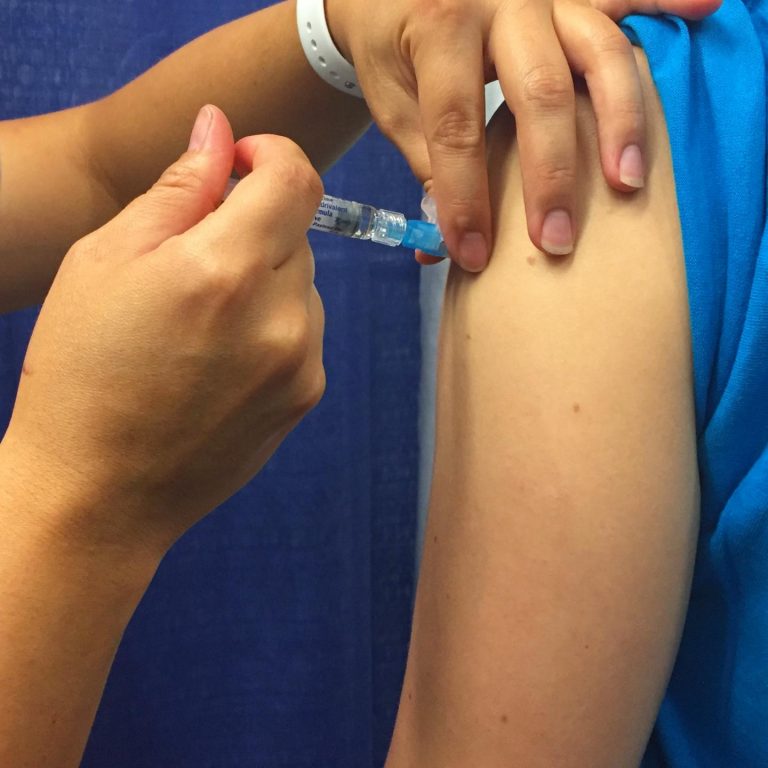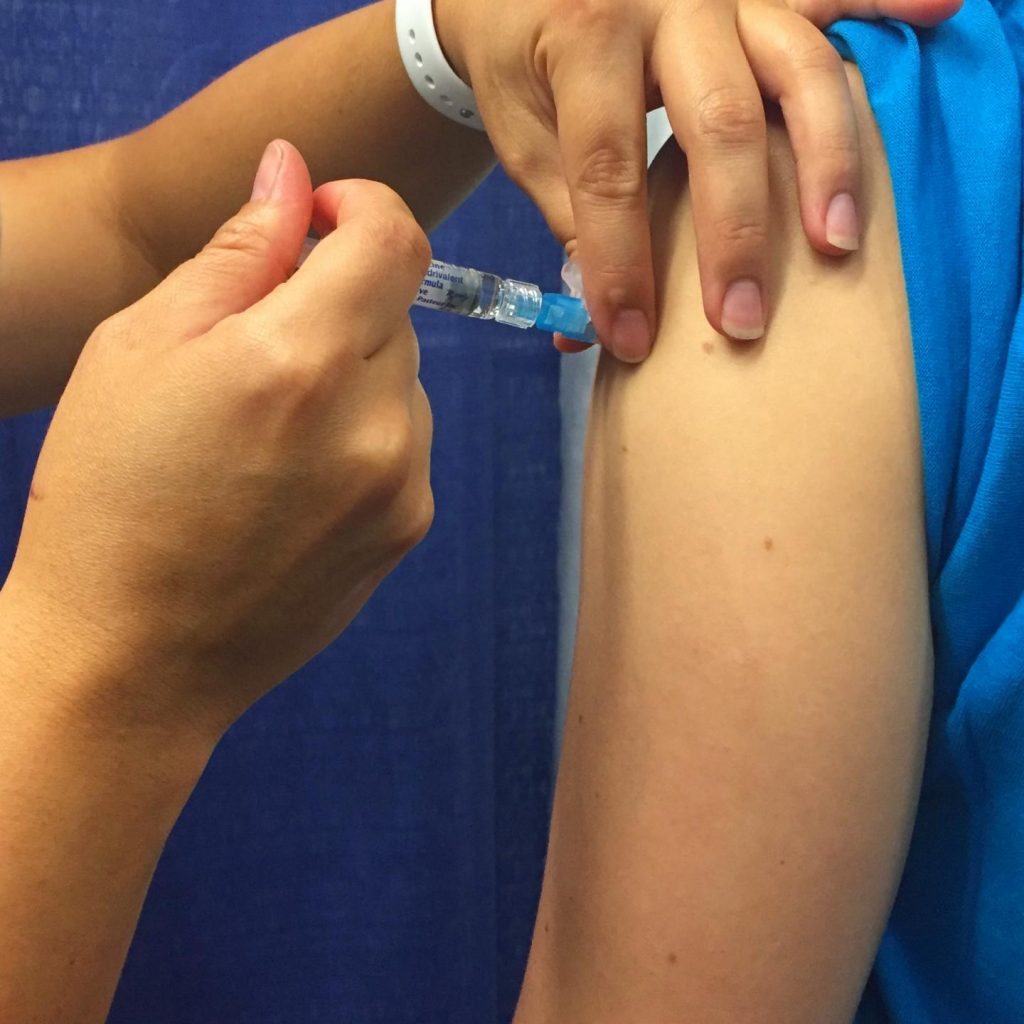The World Health Organization says vaccines prevent 4 to 5 million deaths per year globally.
In the US, some states are better than others when it comes to vaccinating.

Image/NIAID
In a new WalletHub analysis of US states that vaccinate the most (and least), the state of Florida is hovering at the bottom– ranked 49th overall out of 51 (50 states and DC).
The state ranks 47th in Children & Teenagers Immunization Rates and 50th in Adult & Elderly Vaccination Rates.
Only Oklahoma and Mississippi fared worse.
Massachusetts, Vermont, New Hampshire, Rhode Island and Maine were the top five in total score.
To see how WalletHub determined the rankings, see the Methodology section.
Here is an example of some of the “best vs worst” WalletHub ascertained:
- Massachusetts has the highest influenza vaccination coverage for children, 83.60 percent, which 1.9 times higher than in Mississippi, the state with the lowest at 42.90 percent.
- Minnesota has the highest share of adults with the tetanus vaccination, 82.60 percent, which is 1.5 times higher than in New Jersey, the state with the lowest at 53.50 percent.
- South Dakota has the highest share of adults aged 60 and older with the zoster vaccination, 55.10 percent, which is 2.1 times higher than in Mississippi, the state with the lowest at 26.00 percent.
- Minnesota has the highest share of children 19 to 35 months old living in poverty with the combined 7-vaccine series, 84.30 percent, which is 1.7 times higher than in California, the state with the lowest at 50.70 percent.
There is still a significant chunk of the population that is hesitant to get vaccinated. What are the steps local authorities can take in order to counter the current anti-vaccination trend?
University of Notre Dame professor, Paul Perrin, PhD said, “Countering the anti-vaccination trend requires an accurate understanding of what is driving the trend. Even if we might disagree with certain views and choices, characterizing all groups that refuse vaccines as unhinged, ignorant sociopaths is unhelpful and only deepens the anti-vaccination trend. Local leaders genuinely seeking an understanding of what is driving constituent views and behaviors will not guarantee success, but can at least open the door to conversations that need to be had. And frankly, local leaders have at times been part of the problem by using the vaccine issue as a political tool to mobilize their bases. Such behavior clouds the ability to have civil discourse around vaccinations and their important role in addressing threats to public health.
“Often, the temptation is to envision poor uptake of vaccines as an education issue or an access issue. However, anti-vaccination trends are rooted in human behavior and therefore require far more nuanced approaches than simply throwing information at people. There are a variety of potential reasons why an individual or household might choose to abstain from vaccination. For example, such choices could be due to concerns about the safety and efficacy of the vaccine, deeply-held religious beliefs, a distrust of the medical system or prevailing political system, hatred of needles, political beliefs about freedom of choice, failure to see the disease as a threat, or concerns about the effort, time, and resources required to obtain the vaccine. Treating all persons with an anti-vaccination stance as a monolithic population ignores the variety of issues leading to such behavior and potential approaches for addressing them.”





